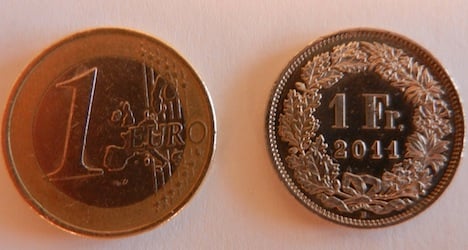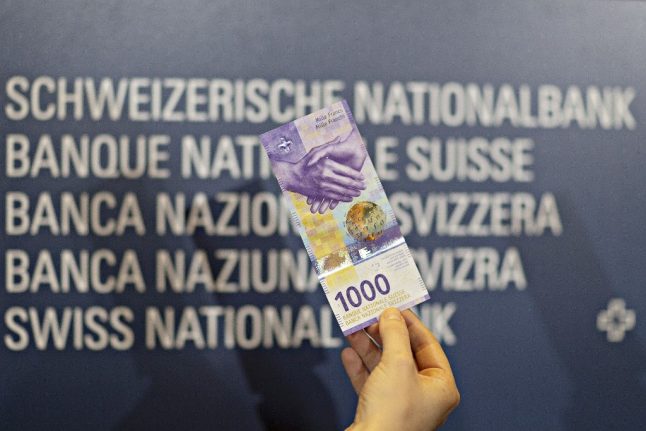Shortly before 10am, the single currency for Europe dipped below 98 cents to trade at 97.81 cents before recovering shortly after to 98.25.
The euro has continued to weaken against the franc since the Swiss National Bank announced last week that it was abandoning a policy of pegging the Swiss currency at a 1.20 rate.
The ECB’s subsequent “quantitative easing” policy, involving the monthly purchase of €60 billion of bonds, has had the effect of driving already low interest rates even lower in the eurozone.
This in turn has put downward pressure of the euro.
But the Swiss franc has also sharply appreciated against the US dollar, which before last week was worth more than the franc.
On Friday morning, the greenback was trading on FX markets for around 0.8712 francs.



 Please whitelist us to continue reading.
Please whitelist us to continue reading.
Member comments